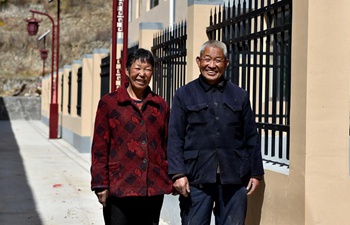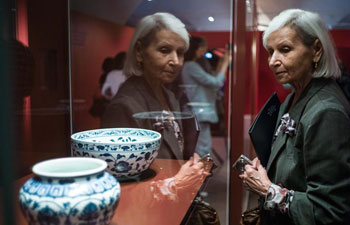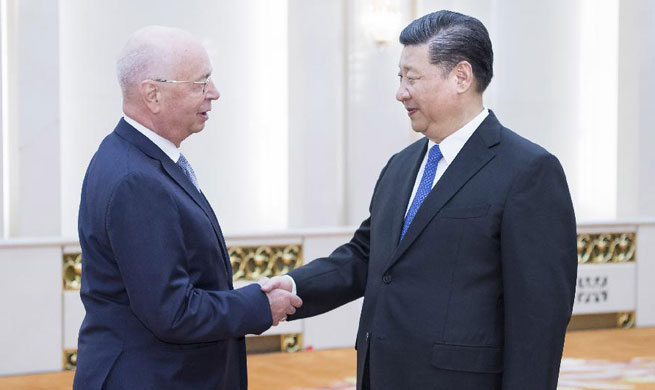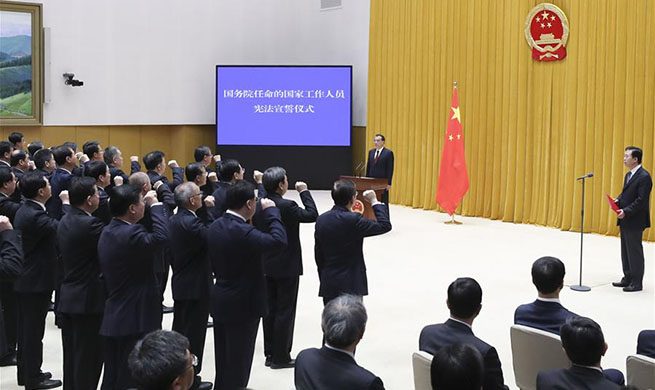TEHRAN, April 16 (Xinhua) -- Iran's private exchange centers remained banned from selling any currency for the third consecutive day on Monday.
Iran's Central Bank (CBI) has banned non-governmental forex market from buying, selling and transferring foreign currencies in an attempt to regulate and stabilize currency rates.
The decision was made on Wednesday following the steep slide of Iran's currency rial against major foreign currencies recently.
Last week, one U.S. dollar was traded for 61,000 rials and one euro was for 70,500 rials, registering a loss of more than half of rial's value over the past year.
On Friday, a CBI announcement said that new guidelines pertaining to currency deals had been developed based on which private exchange centers would be banned from currency deals and they would have the chance to involve in international financial activities.
The new guidelines redefine the job description of exchange centers and "They might be given the role of a mediator for cases when Iranian banks are not interacting with some foreign banks," said Mohammad Ali Karimi, head of public relations for the central bank.
Besides, the CBI has set the official rate of one U.S. dollar for 42,000 rials and it will be available at the banking system and in the liscenced centers designated by the CBI, Karimi said.
Iran's first Vice President Es'haq Jahangiri said trading at any other price was forbidden and would be considered "smuggling."
The government also said in a statement that each person can keep 10,000 euros (12,346 U.S. dollars) and they should deposit the rest of their foreign currencies in an account to be opened at the banks.
If people fail to abide by the regulation, they might be prosecuted for "smuggling," the statement warned.
All the exporters are also required to bring back their export earnings to the country's "economic cycle" through procedures set by the central bank, the CBI said.
Exporters are required to sell their hard currency to the banking system or deposit it in domestic banks, it added.
According Financial Tribune, also all purchase orders for imports, including those at free trade zones and special economic zones, will have to be officially registered, the hard currency for which will be provided exclusively by banks or the liscenced center designated by the CBI.
Currency exchanger, some of which are affiliated with banks, have traditionally played an important role in transferring money for importers, especially during the long years of sanctions when Iranian banks were cut off from the global financial markets.
After the lifting of anti-Iran sanctions on January 2016 in the wake of the landmark nuclear deal between Iran and world powers, Iran began to gradually prompt the banking system to trade in the open forex market.
Three days after announcing the new policy and the new currency rate of one U.S. dollar for 42,000 rials, no U.S. dollar at that rate is available for the users.
Experts believe that the new rate for the U.S. dollar is not closer to the real rate and the government will have to reconsider its policy.
Mohsen Jalalpour, the former head of Iran Chamber of Commerce, Industries, Mines and Agriculture and a prominent businessman, censured the forex controls, saying that they are a repeating the mistakes committed by former governments.
Describing the act as an obstacle to businesses, Jalalpour predicted that the policy would fail, according to Financial Tribune on Monday.

















